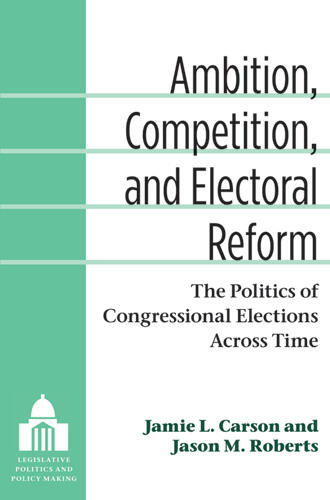Ambition, Competition, and Electoral Reform
The Politics of Congressional Elections Across Time
An original study of U.S. congressional elections and electoral institutions for 1872–1944 from a contemporary political science perspective
Description
In Ambition, Competition, and Electoral Reform, Jamie L. Carson and Jason M. Roberts present an original study of U.S. congressional elections and electoral institutions for 1872-1944 from a contemporary political science perspective. Using data on late nineteenth and early twentieth century congressional elections, the authors test the applicability in a historical context of modern political science theories, assess the effects of institutional reforms, and identify the factors that shape the competitiveness of elections. They present several key findings: the strategic politicians theory is applicable in an era without candidate-centered campaigns; there was an incumbency advantage prior to the full development of candidate-centered campaigns; institutional reforms have had a significant effect on elections; and the degree of electoral competition frequently correlates with elected officials' responsiveness to citizens.
Jamie L. Carson is Professor of Political Science at the University of Georgia.
Jason M. Roberts is Associate Professor of Political Science at the University of North Carolina, Chapel Hill.

